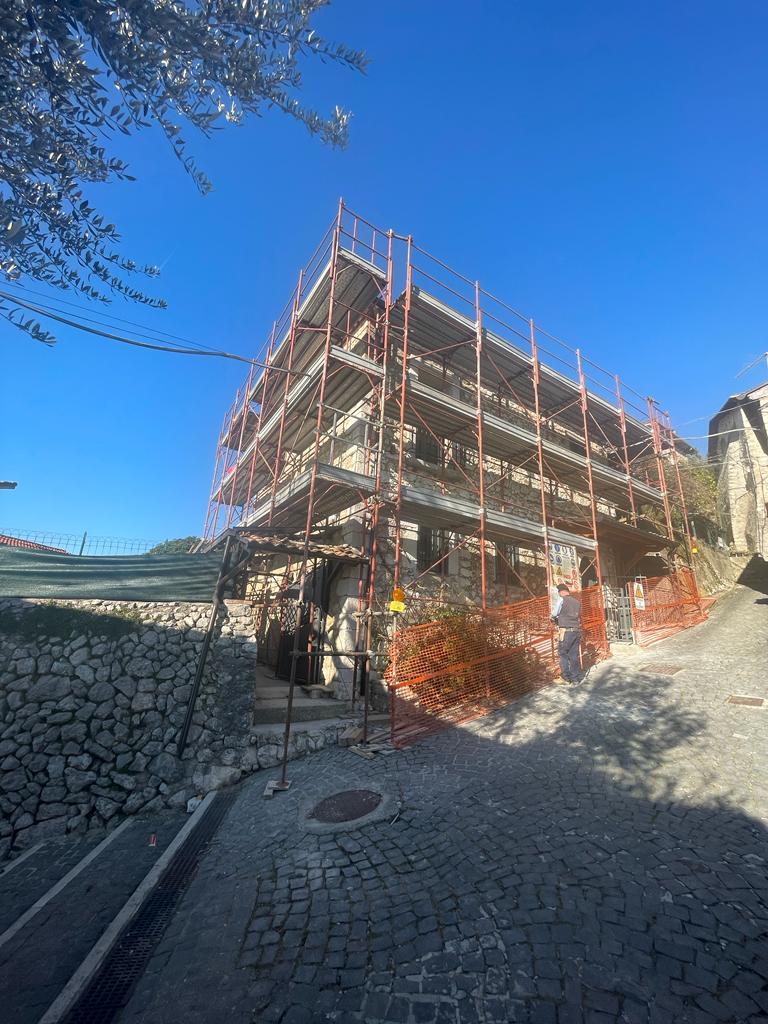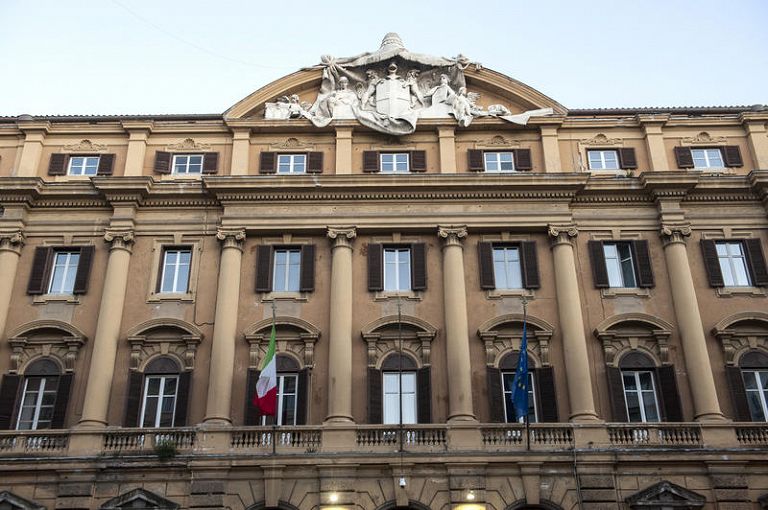A controversial wind is blowing about the measure initiated by the Conte government in the past legislature and the concern of the industry associations about the economic effects of the stop of the so-called construction super bonus that was announced some time ago – but which is now taking effect – could result .
At the Palazzo Chigi the government meeting takes place with the representatives of Abi, Cdp and Sace to discuss the rules blocking the transfer of construction bonus credits. The executive representatives are the Secretary of State for the Presidency, Alfredo Mantovano, and the Ministers, Giancarlo Giorgetti, Adolfo Urso and Gilberto Pichetto Fratin.
A meeting will follow immediately with all interested categories: Reeds, Confedilizia, Confindustria, Confapi, Italian Cooperative Alliance, Cna and Confartigianato.
Exterior view of the Palazzo Chigi
The opening of the executive to a confrontation with interested circles aims to challenge a change in the decree text that has also been loudly demanded within the government itself. While the Fratelli d’Italia defended the decisions taken and put forward the “securitisation of loans” hypothesis as a starting point for the comparison, FI and IV, who said they were ready to go on the barricades “to protect families and businesses “, and to ‘attack the opposition.
In the majority, however, a compromise is sought that makes it more fluid the passage to the Chambers of Decree, and it was Thomas himself photos – Fdi parent company in the Chamber – to first present the hypothesis of a securitization of the transferred loans, as a basis for discussion with the interested parties who will join the table set up by the government: “We cannot jeopardize the public accounts but we are ready to make changes,” he has explained.
“It was important to agree this decision in the Council of Ministers because with the new Eurostat rules there was a risk that public finances would skyrocket and the government has a responsibility to prevent this,” Foreign Minister Antonio Tajani said in Monaco Super bonus question. “Now in Parliament we are working to improve the text,” he added, stressing that “in Parliament we can try to find a solution to help families and businesses.”
 EP
EP Structure of super bonus
The item “Security of public finances”
“We can all say that the supply can be improved – said parent company FdI, a guest on the Agorà broadcast on Raitre – we cannot jeopardize the public accounts. Of course we are ready to make changes.”
What does “loan securitization” mean?
As explained, this is an operation that would result in the accumulated credits (through building renovation operations),
aimed at improving the energy efficiency and stability of buildings are “packaged” in a financial product. Product that would then be placed on the market through a vehicle company (established under Italian securitization legislation).
In this way, the liquidity crisis (which the suspension of the Superbonus could contribute to creating) would be addressed and the obstacles that have surfaced in recent months in the face of a situation that has thrown operators in the sector into a tailspin would be overcome.
 (Contrast)
(Contrast) Ministry of Economy and Finance
Cgia, an expense for the state of 71.7 billion euros
According to an estimate published yesterday by Mestre’s Cgia, the Superbonus has generated 372,303 “affidavits” filed up to January 31 last year, and the state has to bear the so-called 110% cost of 71.7 billion euros. Of almost 12.2 million residential buildings, this measure affected only 3.1% of residential properties. “With the government decree passed the day before yesterday, no solution was found for the many companies and families that are in possession of a large number of important and no longer recoverable tax credits,” said a statement from the Veneto Association.
 AP/LaPresse
AP/LaPresse EU Parliament in Brussels
The crucial opinion of Eurostat
In the meantime, the final opinion from Eurostat – the statistical office of the European Union – is also awaited, which will serve to determine whether the tax credits currently lying in the so-called “tax drawers” have once been released and absorbed by the banking system be included in the 2022 deficit or instead in the 2023 deficit.
The difference could be crucial: the government guarantees that tax credits will be taken into account in last year’s accounts – as noted by the Minister of Economy and Finance himself, Giancarlo Georgetti – something not”renounce the renewal of any social measure” during 2023. Otherwise, the executive risks having its hands tied in a key sector for the government program for the rest of the year. An “opinion” issued by Eurostatwhich will arrive in the next few days.